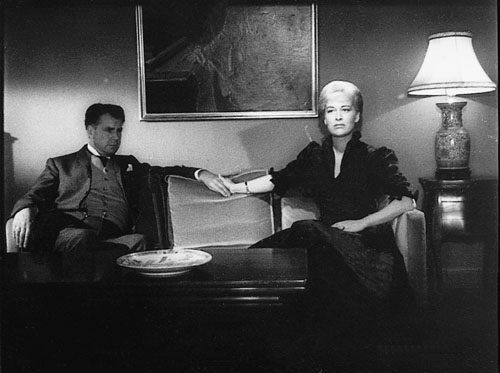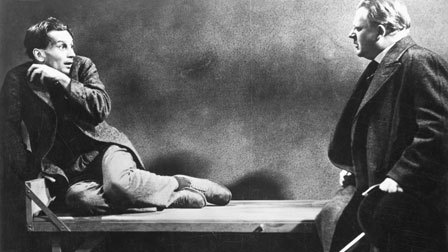
Pickpocket, Dr. Robert Bresson, 1959
Horkheimer wrote……
“…a profound change of outlook…that has taken place in Western thinking in the course of the last centuries. For a long time….the view asserted the existence of reason as a force not only in the individual mind but also in the objective world….great philosophical systems such as those of Plato and Aristotle, scholasticism, and German idealism were founded on an objective theory of reason. “
Harmony was reasonable. Proportion, both emotionally and materially, were a form of the reasonable. One could see the harmonious man or woman, the harmonious culture, and the harmonious dwelling.
The emphasis was on ends and not means.
Molly Klein’s comments on the previous post stimulated a return to the topic of snark, representation, realism, and to reason. For as she pointed out, was not the era of 1789 to 1848 the formation of forms that became the ancestors of today’s genre art?
As Horkheimer wrote; “there is a fundamental difference between this theory, according to which reason is a principle inherent in reality, and the doctrine that reason is a subjective faculty of the mind”.

Objective reason was not focused on means, or aims —- but on concepts, ideas, theory —even if, as Horkheimer suggested, some of it sounds rather too mythological. It may be that today mythological has come to mean children’s books, The Night Kitchen, or cartoons, rather than what it meant even as recently as 1944.
The current notion of ‘reason’, the new tyranny of the subjective, leads logically to the over-valuing of opinions. And the weird insistence (reactionary…and more on that in a minute) on the opinions of others.
As a side bar observation: a common refrain from those without real political maturity of any kind is to say ‘well, I read right wing and left wing news….I want to know what everyone is saying’. I always want to scream, read it ONCE for fuck sake, you don’t have to read fascists more than once. Once, and then you know what is wrong.
How often has one heard, ‘oh, its just your opinion, it all subjective anyway.
Where this leads of course is the management of the status-quo. Snark is the posture of smugness. The snarkiness is saying oh, pah-leeeze, that was so fifteen minutes ago last autumn. There are horizontal factors entering the discussion here. One is a basic anti-intellectualism, and the second is the infantilization of the culture. The primary narcissism of the infant and young child — and thinking on both Freud, and Leclaire, later, here, the role of the “picture of the real”, the parental construction of an image of the child, for the child — an unconscious wish of the parental authority. But, however it is shaped, and that is a pretty cogent dialogue to have, the fall back position of snark, it foundational backdrop is realism. But a particular sort of realism. The rationalist’s realism.

The white male western world view loves to congratulate itself on its rationality, while at the same time condescending paternalistically to less “developed” cultures (which means less wealthy). Lack of an iPhone usually means backwardness.
Horkheimer again:
“In most cases, to be reasonable means not to obstinate, which in tern points to conformity with reality as it is.”

The snark stance is consonant with the hierarchical world of white power, white male power, and unreality (fantasy, which is very feminine….sort of sissy stuff, actually) can be tolerated only if it is either pathologized (a mental illness, a hallucination) or it is pure decoration (the feminine again). Men drink their coffee black, steaks rare, and etc etc etc. And there is a deeply entrenched belief in instrumental thinking, in logic, in the linear forward moving logic of Manifest Destiny, the internal combustion engine, and the assembly line. There is something yet to be tweezed out in this having to do with tools. With the direct hands-on making of *things*. For in such acts, and impulses lie several registers of contradiction and paradox.

This brings me back to this idea of defining realism. It cuts to the heart of both the creation of kistch aesthetics as we find them today, and to the world structure of global capital. At what point, historically, did the very idea of “realistic” gain traction? I don’t believe the goal of verisimilitude was consciously pursued prior to the late 1700s. And perhaps, really, the industrial revolution was a marker for a specific quality of “realism” emerging.

The question of genre, which I raised last time, cuts across all of this. When I read James Cain, now, it strikes me as closer to Noh Theatre than to kistch realism. The sense of formal rules of expression, in which the subjective is closed off, in a sense. The psychologizing that took over at the end of the 19th century, infused novelistic narrative with the primacy of the subjective (though Dostoyevski’s subjective is not today’s subjective). And with instrumental reason, per Horkheimer. That trajectory, from Romanticism, and tragedy, from myth and ritual, toward the subjectivist reason of the Enlightenment, and on to the belief in progress, linked up with Capital and Imperialist conquest, and the domination of nature, all sort of coalesced into a junk science form of rationalist withdrawl from self. It was the objectifying of the self. The colonial master of all HE surveyed. The bougeoisie, in their desire to emulate the men of wealth, the captains of industry, connecting it all up with an emotional deadness, of emotional witholding, and a hyper-masculinizing of culture, applauded and canonized this psychic distancing.

Now, even within this trajectory, aberrations and anomalies occurred. Or rather, that secret utopia posited by Adorno and Horkheimer, could be detected. The near religious discipline of a Jackson Pollack, or Rothko, or the proletarianized version of that discipline, secular yet by virtue of its fundamental refusal of the status quo, in pulp writers like Thompson and Cain, became a working class Kabuki act — or the monastical meditations of Carl Dryer, Bresson, or Ozu — these all expressed through the rigor of form, the ceremonial dimension of a pre-rational antiquity.
They all embodied a male stoicism, but served within that sensibility, as commentary on the truth of an alienated populace, lonely and confused. The truth of cynicism was suffering.

Gertrude, dr. Carl Dryer, 1964
The snark factor denies the suffering and feelings of impotence, in a brandishing of cosmetic superiority. In comedy, the shared pain of a Keaton or Chaplin, or even Burns & Allen or Phil Silvers — in all of whom the echo of (as Adorno put it when describing Shoenberg) the cafe fiddler is still heard. The trace elements of vaudeville, of Yiddish theatre, of exile, still lived on. It slowly gave way to the snide and sadistic impulses of an Adam Sandler or Jerry Seinfeld. The white snark was expressed in “being an insider”, one of the cool kids in the cool clique.
I’ve often wondered at the rise of the “behind-the-scenes” segements of TV fan shows. We will show you the tricks, let you in, behind the scenes, to be one of the cool kids. It’s all just tricks and illusion, and once that is internalized the sincere engagement with the artwork, with the narrative, is distanced even further.
So, as Molly Klein said in those comments, what was left behind; the fantastic and delirious, the Dionysian, the folk art traditions, marionettes and puppets, the spontaneous, is really the birthplace of genre.
Horkheimer:
“The crisis of reason is manifested in the crisis of the individual, as whose agency it has developed. The illusion that traditional philosophy has cherished about the individual and about reason — the illusion of their eternity — is being dispelled.”

Early Spring, dr. Yasujiro Ozu , 1956
Kenneth Noland :
“When you look at a great painting it’s like a conversation. It has questions for you. It raises questions in you…. …Being an artist is about discovering things after you’ve done them. Like Cézanne – after twenty years of that mountain (St. Victoire, fh) he found out what he was doing.”
The elite hoard things, their power is usually expressed by a control of ‘things’. The more preoccupied one is with holding onto that power, the less human you become. The more autistic, the more like an automaton.
In what way one refuses the system, is the determining factor in aesthetic autonomy. In resistance to the Spectacle. For the kitsch refusal looms here, as well. The various new age mysticisms, the fetishizing of foods and diet, an exclusivity that expresses class antagonisms as much as anything else.
Snark is the desire to adjust to a pre-fabricated reality. It is the adaptive impulse mediated by marketing and advertising, by a growing police state surveillance system that renders everyone just a ‘subject’ on CCTV. The idea of individuality is worn down when all you are is a voice on a machine, recorded by powers you never see.

Dr. Mabuse, the Gambler, Dr. Fritz Lang, 1922
The engineer has given way to the programmer and manager. Means and not ends. People are instrumental digits, and their behavior predictable to some degree. Predictable enough for the manager anyway. For the power system to operate smoothly. The glorification of professionalism is really just the privileging of white male power, of a hierarchical system of domination — and the snark posture is available for any occasion. One size fits all. It is the erasure of difference. The establishing of kitsch psychology turned the original exploration of psychic pain into an adjustment therapy, from the enemy within to the enemy without. Snark is reactionary and fascistic.
Horkheimer:
“The real individuals of our time are the martyrs who have gone through infernos of suffering and degradation in their resistance to conquest and oppression, not the inflated personalities of popular culture…”
Popular culture by virtue of its very popularity, today invalidates any secret utopia that might have been lurking….though likely it cant be there anyway. Nostalgia is always reactionary. Nostalgia is kitsch memory.
The sentimentalizing of narrative is really a form of false consciousness. The sentimental can only exist in the most reductive of world views. Pepsi commercials can make you cry, but that doesn’t change their inherent triviality. The well adjusted purveyors of success, the careerist artists must, at some point, always choose. Madness or slavery (Artaud). Aesthetics can contain no formulas or recipes. For the impulse toward truth is predicated upon a rejection of forumla.

There is much more to say about the history of the idea of realism. This serves the briefest of intros.
Realism (as it is meant today in common usage) is the subtraction of everything that cannot be explained, catagorized, or which is somehow empathic. The clarity of Bresson’s vision, the ignoring of availability to popular acceptance, the sense of practicing each time anew on what was both an experiment in form, and a test of truth telling. A meditation on the form that film presented him. Those films are not realistic.
But what are they? Perhaps uncanny.

Dostoyevsky today reads more like James Cain, than he does Zadie Smith, or Jonathan Franzan, or whoever is literati du jour right now with the establishment. Genre retains the gesture of labor, of suffering, and of community. It raises questions. It does not suggest palliatives or panaceas. It holds to the sound of its origins in some fashion, while interrogating those origins. Genre is contained within the form, but by virtue of that, it is not enclosed by the Spectacle. There are paradoxes to all of this, all the more reason to examine it further. Corporate science, artistic naturalism, realism, are now serving a disinfecting and trivializing of the mysteries that allow for individuality, and the truth such formulations are all illusory anyway. The marketing of individuality is there to ease the realization that it’s really conformity being sold. The pulp crime novels, the noir films of post war America, the books of “ghetto” writers such as Iceberg Slim and Donald Goines, all of this work grows in stature by its excising of snark. Dryer, Bresson, Fassbinder, these are the practitioners of genuine empathy, sincerity, and honesty. There are others, and categorizing is a losing gambit anyway…that’s the point. Where does one put Genet or Bernhard? Or Faulkner and Hemingway or Flannery O’Conner? In the pantheon, is all we can know or should care about. Snark cannot tolerate the sincere. Sincerity is wounding. Snark cauterizes that wound, the better to obscure the humanity.


All so cogent and relevant John. To the religiosity of the genre form you mentioned in the previous post, I think it is in the formal ending of well done genre, in those final scenes, where the accrued meaning of the narrative finally pools and crystalizes, that genre’s distinctive power is revealed. And this moment is precisely what cultural product today lacks.
I’m thinking of noir here, and film specifically; the two lovers killed at the end of Crisscross, the money flying uselessly in the air in Point Blank, the betrayal and deaths that end Out Of The Past. Mysteries of being. And hard Biblical truths. Usually involving the way greed and mimetic desire lead to death or existential despair.
Laid bare in these moments are the uncauterized wounds of which you speak. In good genre, existence is always on the line. And suffering is real.
This moment is excised from most all of what we see today, certainly all entertainment. And in snark, it never had a chance. Obviously it’s bad for business. These endings upstage what is being sold.
Instead we get Jessica Chastain’s in the transport plane flying back to home after killing with impunity in the land of the other, glycerine tears artfully trailing down on her cheek. What is the meaning of this? For who or what does she cry? It’s not clear from the narrative that has preceded this last scene. And it’s not clear because nothing of whatever of significance has preceded it. We have watched an two hours of an infomercial selling us torture and adoration of American dominance.
Perhaps she cries for the voices of the 9-11 victims dying on the voice recording that shamelessly opens the film. Real death, manipulated as movie suspense, the abject fakery and voided consciousness of the actor’s tears sold as real emotion. It’s criminal. The end.
Great comment chris…..and correct, although within your comment lies a paradox — one of many. The “ending” is a specific sort of “ending”. Criss Cross is a great example……..because that ending is not exactly a conclusion, though on another level it is. It suggests a lot of things… but it feels fatalistic, inevitable….the logical ending of this tragic doomed relationship…….and the genius of that film is that that logic contains history and social conditions, as well as the individual flaws of the tragic protagonist…..the lancaster character. —on the other hand…The cheap kitsch ending is what wraps up a narrative by enclosing it within a reduced world. A simplified world in which things CAN be ended in a comfortable way. Now the ZDT ending….the chastain non ending is a non ending because the entire film is a sort of non narrative. What do you do with that story? There are a lot of examples of this. When speilberg remade war of the worlds……….he lost all the political implications of the Wells story. The first film at least suggested them to a degree. But the speilberg version was just like a m,eaning-free zone……aliens come, we hide, they catch cold, and they die. Viola. Nothing else, i mean there is NOTHING else in that film. The idea of repressive state institutions, or social alienation, etc etc etc……..none of that exists in that world on screen. So………yeah, its very interesting to think on and I will probably try to write more about exactly this.
i guess what I am trying to get at is that the formal ending is, dialectically speaking, not the end. The kitsch ending, the end of a plot, is an end that suggests endings actually function as endings…….. its an interesting topic, because I wonder at , say, grimms fairy tales…..those endings are almost Kafka-esque, in spite of “happily ever after”.
Theweleit, Male Fantasies
The “blackout” also takes civilian forms: work, in the acceleration of “turnover” to breaking point; competitiveness among relative equals in all its forms (the European male principle of mutual competition can be seen as anchored in the prohibition of love between them); momentum, verbal machine-gunning, thinking as quick as lightning, sparkling wit, “esprit”, brilliant humour. Such skills are often said to be rare among women. True enough perhaps, yet the conclusion should be that what women lack, men should equally abandon. The more men’s polished words gather momentum, the more they distance themselves from intrusive feelings; they bask in armoured brilliance. More than this, they do violence to anything similar to themselves; they identify their own faults in other with punctilious precision, and mercilessly annihilate them.
If men fail in their strenuous efforts to transcend themselves and achieve self-coupling, they revert ultimately to states of devouring symbioses; when they fail to “shake off” the man they have once been, self-disgust triumphs.
Gramsci:
Witty people are a very important part of modern social life, and they are very popular. They replace truth, seriousness and profundity with a quip that makes people laugh. The idea of their spiritual life is the elegant drawing-room, its fatuous and brilliant conversation, its measured applause and the veiled smile of its habitués. They reduce all life to the clever mediocrity of drawing-room life: a lot of words, aimable scepticism, and a light sprinkle of melancholy sentimentalism. The wit has become even more important through the latest incarnation of drawing-room life, namely the offices of the bourgeois newspapers. Here the wit has enlarged the circle of his audience and has made everything a source of humour – politics, war, pain, life and death – thereby winning much applause and earning a pile of money. – Antonio Gramsci, Avanti! Piedmont edition, 18 April 1917
“Snark is the desire to adjust to a pre-fabricated reality.”
It’s like what’s left of wit, of this aggressive function of wit, ater the intelligence and verbality is burnt off. Snark is degraded, but its carrying pout some function that was prepared for, that has a history. There is something in the density of these effects of snark that signal the supercession of language by the impacetd image, the verbal image – all these neologisms that are so tightly encrusted with assumptions that cannot be dislogued. Everything is solid state, the moving parts of labguage don’t work, its all rigidly bundled to form something even beyond the cliché. Whole extra strength doses of ideology in every inarticulate syllable of snark. As you it’s fascist, but really instant, powdered, just add water. The inaccessibility of these “sentiments” (affects) are like the inaccessibility of computer games as opposed to dolls or toys requiring imagination and knowledge and developing language and mental function. Snark is the exteriorisation, the alienated and vitiated and returned form of “critique” that resembles commodification and assists in the prodcuction of the value creating labour of savvy and familiarity.
I remember being extremely disconcerted by the sort of east village irony in the 80s wiuth which women my own age exhibited sentiments like affection for Barbie dolls and all these things we had actually found repulsive and offensive in childhood. That had a sentimentalism of the same timbre as snark. It may still be there – the implied self conscious tearfulness such things as this
http://www.flickr.com/photos/sunshineunicorn/6155989606/
(really irresistible, the machinery functions) – we can experience and exhibit that sighing tenderness but only with the shellack of persona that is also the protagonist of snark.
There are a lot of topics in all this. Victoria Nelson has an interesting book, The Secret Life of Puppets. One thing touched upon…..though without a really cogent political analysis…..is the way in which pre Renaissance religion was the material basis for most artwork…….and how that changed gradually over a few hundred years…….until today we have “entertainment”, the culture industry, forming the basis of religion. Scientology is the obvious example and its why The Master is so compelling. But there is also this psychologizing that has gone on……..for the last forty years anyway, where an adjustment ethos has provided this substitution for this reversal. The new magic thinking is always psychologized somehow….it is subjective, displaced but not gone. Terry Castle calls this a demonizing of thought. The subjective is now the supernatural, the demonic or something, but in the course of this displacement it is intersected by a system of social domination. The new magical is kitsch magic, it is a psychology of adjustment to domination……and reason, as horkeheimer has it, becomes not just instrumental, but buried within a new formula for “reality”, realism, that is the creation of mass media and corporate technology —– thought, real autonomous reflection is labeled as neurosis of some kind. The ideological — per Molly’s comment above, is static, it is indeed dense, it is imploded history, packed into repetitive formulas for storytelling. This is what entertainment is, in a sense. That which formed the basis for wonder in antiquity, the imagination given over to myth, or magic, is now moved into a sanitized therapeutic code, and trivialized, or just castigated and demonized as “not working”….not conforming, and snark is an expression of condemnation for autonomy.
the topic of science fiction and horror films, is a sort of adolescent safe way of placing that sense of history, fate, and the uncanny into this boy’s science project. The extreme edges of this dynamic can be seen in Scientology or EST or cryogenics, or whatever…..all the new age stuff, as well as in the treatment of the Hadron Collider — where the mystical far reaches of math and logic come to interface with the forces that are erasing the imagination. It is imaginative and it is not. It is, but it must serve another principle somehow. The moon landing … (assuming you dont think kubrick shot all those first photos) was this utter failure of the imagination. What did they do up there? they tried to play golf. It was the endgame for instrumental thought in a way. it is obviously still being processed, which is the interesting part. But this stance for what we are calling snark is one in which the contours of white masculine domination are so clear. It is empty, there is no empire , not the desired one anyway, but there remains the codes of domination. To belittle, to wax sarcastic at everything, laughing at “conspiracy theories” etc……..at anything that is not already agreed upon before hand. There is no decision, there is only defacto agreement. Its already been judged. There is only the sniggering approval of the good rational all powerful white man. The lens is always white and male….and capitalist, imperialist.